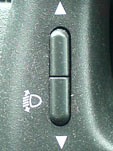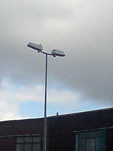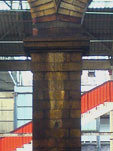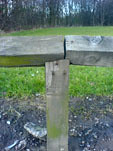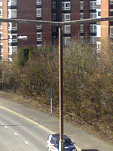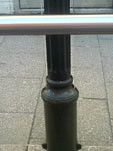eric the half a bee - m. python
he second, and final, part of the introductory bee-keeping course on Saturday started badly. Lisa couldn't go because she was starting a new job, and I was still feeling the effects of working very late one night.
The person on the course who had annoyed me on the first day by repeatedly interrupting and laughing loudly at her own comments was there again, and the delegates, including her, who already have bees, kept sidetracking the lecturers with questions on more advanced subjects. Above all, the weather was again poor, so a visit to the apiary was unlikely. I found myself feeling grumpy and resentful, not wanting to be there at all.
It started to rain at lunchtime, so afterwards, instead of seeing the bees, we watched a video on rearing queens - advanced stuff, and delivered in monotones. I was close to falling asleep in the darkened room, having decided that beekeeping is far too complicated to bother with. And then...
Then the weather brightened and the lecturer stopped the video to announce that it was worth going to the hives after all. We all got kitted up, some, like me, in old, borrowed veils, and others in crisply-white, newly-purchased jackets, trousers and gloves. To my great delight, we split into two groups, those who had already handled bees going with one lecturer, while we complete novices huddled somewhat apprehensively round the other.
This is turning into a long post, so I'll tell you all about it next time, but let me reassure you that it was a wonderful experience, and I now know why people might devote many years to learning about bees.


